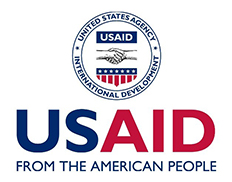Share
Print

General Information
Document Type: Grants Notice
Funding Opportunity Number: 72039125RFA00002
Funding Opportunity Title: USAID/Pakistan Inclusive Water Governance Activity (IWGA)
Opportunity Category: Other
Opportunity Category Explanation: Notice of Funding Opportunity (NOFO)
Funding Instrument Type: Cooperative Agreement
Category of Funding Activity: Other (see text field entitled "Explanation of Other Category of Funding Activity" for clarification)
Category Explanation: Water Governance
Expected Number of Awards:
CFDA Number(s): 98.001 -- USAID Foreign Assistance for Programs Overseas
Cost Sharing or Matching Requirement: No
Version: Synopsis 1
Posted Date: Dec 06, 2024
Last Updated Date: Dec 06, 2024
Original Closing Date for Applications: Feb 06, 2025
Current Closing Date for Applications: Feb 06, 2025
Archive Date: Mar 08, 2025
Estimated Total Program Funding:
Award Ceiling: $14,000,000
Award Floor: $2,990,000
Eligibility
Eligible Applicants: Others (see text field entitled "Additional Information on Eligibility" for clarification)
Additional Information on Eligibility: Eligibility for this NOFO is restricted to local Pakistani organizations or local Pakistani entities.
Additional Information
Agency Name: Pakistan USAID-Islamabad
Description:
Background and Problem Analysis
Pakistan’s water management sector simultaneously faces the immediate and dual risks of frequent floods and water scarcity. Climate change is further stressing the fragile water balance due to unpredictable variations in the intensity and frequency of rainfall and runoff. As discussed below, hill torrents, urban groundwater recharge, and rural water storage are three critically-important yet under-resourced areas of work.
Governance is an integral element that underpins these three water sector challenges. Literature review shows that the “the real bottlenecks often are related to governance challenges such as narrow mandates and capacities of main organizations, ineffective operational procedures besides institutional fragmentation, lack of systematic planning and inadequate financial systems.” The absence of locally-led inclusive and robust policy and implementation mechanisms, lack of systemic coordination among key stakeholders, limited and unreliable data, inadequate water service delivery and financial unsustainability of water systems are some of
the major causes that lead to mismanagement of flood water.
